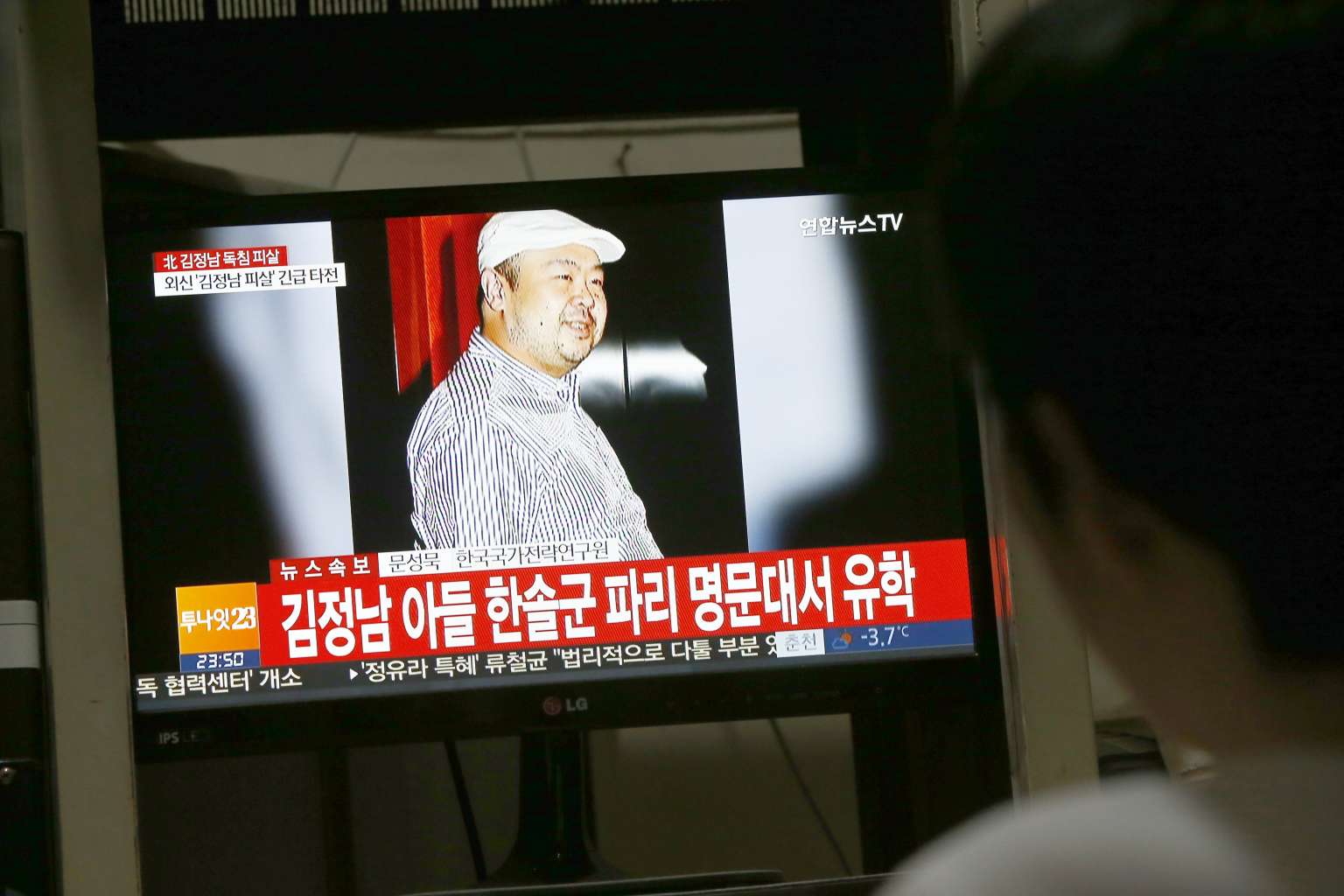Kim Jong Un loyalists may have been behind killing of Kim Jong Nam: South Korea experts
Sign up now: Get ST's newsletters delivered to your inbox

A South Korean man watches TV showing breaking news about the alleged assassination of North Korean leader Kim Jong Un's half-brother, at a home in Pyeongchang, South Korea on Feb 14, 2017.
PHOTO: EPA
Follow topic:
SEOUL (THE KOREA HERALD/ASIA NEWS NETWORK) - The murder of Kim Jong Nam, the estranged half-brother of the North Korean leader Kim Jong Un, could have been engineered by a North Korean faction loyal to the current chief to eliminate a possible threat to the regime, South Korean experts said on Wednesday (Feb 15).
In interviews with The Korea Herald, the pundits also asserted that the killing may have been motivated by Kim Jong Un's concern that the elder Kim may seek political asylum in other countries and become the most high-profile dissenter of the Stalinist regime.
The views were contrary to the assessment of South Korea's top spy agency, the National Intelligence Service (NIS), which told lawmakers on Wednesday that the incident is presumed to have been based on Kim Jong Un's "paranoia" about his older half-brother, rather than a calculated decision.
"In order to show their loyalty to the leader Kim, some fervent subordinates might have acted on a tacit order from him to take out Kim Jong Nam," said Ahn Chan Il, director of the World North Korea Research Centre and a former North Korean military officer who fled to South Korea in 1979.
Kim Jong Nam, 47, died Monday after being attacked with poison by two unidentified women at a Kuala Lumpur airport while waiting for a flight to Macau, where his family members live, according to Malaysian police and South Korea's spy agency. It has not yet been confirmed whether North Korea was behind the attack.
Ahn noted there must have been an "urgent need" to assassinate Kim Jong Nam, adding that Kim Jong Un may have been extremely unnerved by the possibility that his outspoken, flamboyant half-brother might seek asylum in South Korea and Western countries.
In 2012, there was a rumour that Kim Jong Nam considered defection to South Korea. Recently a local media reported that South Korea had tried to negotiate his defection, but the effort failed due to differences over the terms and conditions.
Cheong Seong Chang, a senior researcher at the Sejong Institute, said the very report could have angered Kim Jong Un, prompting him to order assassination of what he viewed as "real threat" to his leadership.
"Without approval of Kim Jong Un, assassination of Kim Jong Nam never would have happened," said Cheong. "If the elder Kim blackmailed the younger Kim with a threat to defect, Pyongyang's leadership would have chosen to assassinate him, instead of considering a compromise."
Chung speculated that General Bureau of Reconnaissance, Pyongyang's intelligence agency which manages the communist state's clandestine operations against South Korea, may have orchestrated the murder, saying the agency is in charge of taking out dissenting officials and has been spying on Kim Jong Nam.
Earlier in the day, the NIS said the killing of Kim Jong Nam had been a "standing order" for North Korean agents since 2012, when he reportedly sought asylum in South Korea. The intelligence service added that Kim Jong Nam also asked Kim not to kill him and his family members.
Yang Moo Jin, a political science professor at the University of North Korean Studies, agreed that Kim Jong Un might have taken a "specific step" that led to the assassination, speculating that the deceased may have tried to come to South Korea or refused to return to the North in defiance of the leader's order.
"I suspect Kim Jong Nam definitely did something that hurts the reputation of North Korea's supreme leader Kim Jong Un, which the North viewed as the most serious crime," said Yang. "Defection attempts, refusal to obey the order… anything could be possible."

